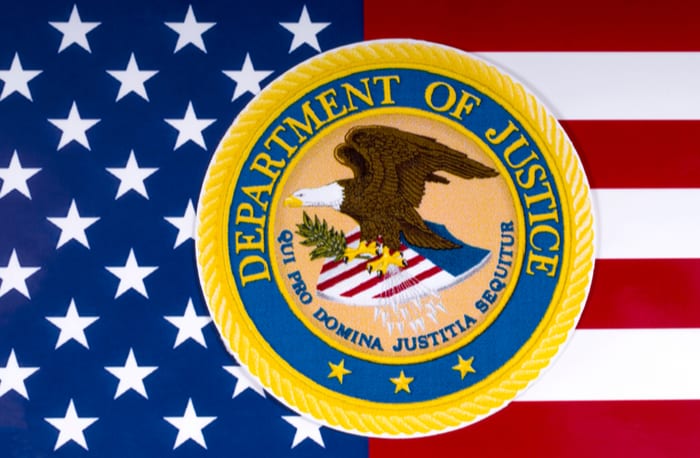DOJ To Review Liability Law For Online Content Companies

The U.S. Department of Justice (DOJ) is organizing a workshop to review a federal law that predominantly releases websites from legal culpability for anything their users post on their platforms, government sources told news outlets on Friday (Jan. 24). The Information reported that such a workshop was planned for February, while a government source said that no date was set.
A source from the U.S. government told Reuters that the DOJ is summoning a broad array of concerned factions to a meeting to evaluate the fate of Section 230 in the Communications Decency Act of 1996. Invited parties include industry representatives, members of Congress, “thought leaders” and people from President Donald Trump’s Cabinet.
The law gave Big Tech firms like Facebook, Twitter and YouTube the freedom to allow all types of posts on their sites, without giving much attention to illegal or offensive material. However, Republican and Democratic lawmakers have recommended that Congress revise Section 230 so that tech firms can be held liable and sued more frequently.
Some Republicans fear that Section 230 could stop them from taking action against online platforms that delete conservative political content. A few Democrats have expressed concern that the law lets Big Tech off the hook for storing deceptive and radical material.
In December, a speech by U.S. Attorney General William Barr indicated that the DOJ was “studying Section 230 and its scope” because “many are concerned that Section 230 immunity has been extended far beyond what Congress originally intended.” Barr further said that Section 230 has enabled platforms “to absolve themselves completely of responsibility for policing their platforms, while blocking or removing third-party speech — including political speech — selectively, and with impunity.”
There are legal experts, however, who are concerned that amending Section 230 would negatively affect freedom of expression online.
The Director of the Free Expression Project at the Center for Democracy & Technology Emma Llansó told news outlets that she received an invitation from the DOJ regarding “public panels and private meetings.” Five professors who study online speech and expression laws were also invited to the meeting. Two said they had not been given details on the event’s timing, participants or format.
The DOJ said in November that its antitrust review into Big Tech firms could move beyond that scope, and into areas that include consumer protection, public safety and privacy. The DOJ’s efforts are said to echo the desire of the White House to curb the power of tech firms.